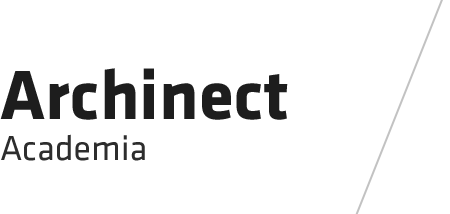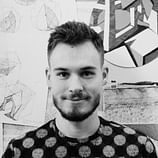
Brussels, BE

KU Leuven Faculty of Architecture Campus Sint-Lucas School is a Belgian school of architecture established in 1862 with campuses in Brussels and Ghent.
It is the oldest free architecture institute in Belgium. Since 1995 the department has been part of the School of Science & Arts. School of Architecture was a partner in the Association KU Leuven since 2002. Since 2013 it is the "KU Leuven Faculty of Architecture".
PROGRAMS
POSTGRADUATE
FURTHER EDUCATION
DOCTORAL FORMATION IN ARCHITECTURE
INTERNATIONAL
DOING A PHD IN ARCHITECTURE
RESEARCH KU Leuven Faculty of Architecture
The specific research profile of the Facultyl of Architecture (Architecture, Interior Architecture, Urban Planning and Spatial Design, Interior Design) is fully in line with its educational focus. In all our academic educational master programs the major focus is on design activity and the designerly thinking. Strongly future-driven, it seeks alternatives and employs imaginative power. It examines possibilities, deviating from the known and the ruling, opening up towards renewed research questions. The materiality of the architectural, interior architectural and urban design itself is the instrument with which spatial, but also social and cultural questions are examined.
The research at the Faculty of Architecture has a transdisciplinary nature and uses a wide range of appropriate modes, methods and strategies to generate fundamental knowledge, insights and understanding. The limits of the discipline of architecture are explored in a spirit of intellectual openness.
A significant group of researchers is approaching its research activities through research by design. Through a wide range of research methods and building on experiences from practice and during designing, the research develops critical understanding of the field of architecture which frequently challenges urban, architectural and interior-architectural theories.
The research at the Faculty of Architecture addresses the core of the discipline of contemporary architecture, interior architecture and urbanism. A large group of researchers is focusing on the topic of transforming practices. Here the research builds on practice and the experience gained during designing and/or making. It is explored and developed by continuously designing and exposing to a wider audience. Questions include: What are the key developments in the field? What is the added value of Architecture, Interior Architecture and Urbanism? Who are architects/designers? Where do designers want to go? What is critical in a design practice? What is important for people? The method includes the specific but also the general, the context and a frame of reference, interaction and discussion. It explores possibilities and develops proposals for the future.2
At the same time other research-teams3 and individual researchers bring together expertise in the diverse areas of architectural culture, sociological and anthropological aspects of spaces, inclusive design, building techniques and spatial development, spatial exploration, building management, mixed-media and CAAD in relation to the architectural design practices and productions. The close cooperation between researchers and designers is an important asset in the contemporary research context where transdisciplinarity is more and more considered as essential.
Through a wide range of projects, the Faculty of Architecture established expert understanding in topics as urban processes (participation, morphology and urban development strategies), Brussels (urban spatial development, social stratification and metropolitan policy), light & colour, public spaces (public interiors, train stations, airports, public buildings, the urban interior, …), universal design, analysis and reuse of post-war architecture (church architecture, sacred spaces, social housing) and digital technologies.
The Faculty of Architecture heavily invests in its international profile. The Research Training Sessions for doctorandi are organised in collaboration with international tutors. Moreover, intensive international collaboration with institutes such as RMIT University (Melbourne) and Chalmers University of Technology (Göteborg) results in joint research projects.
